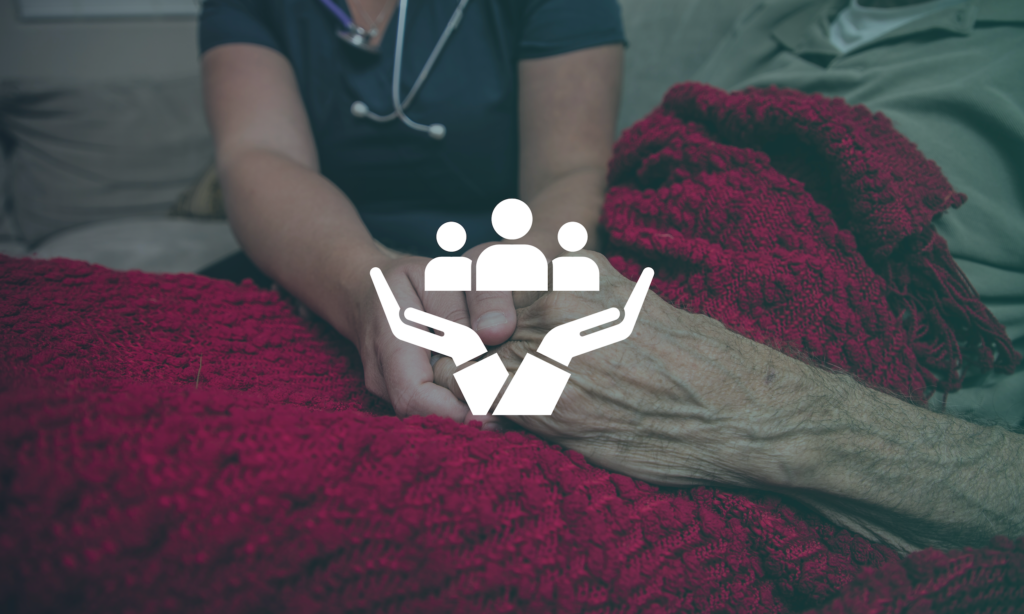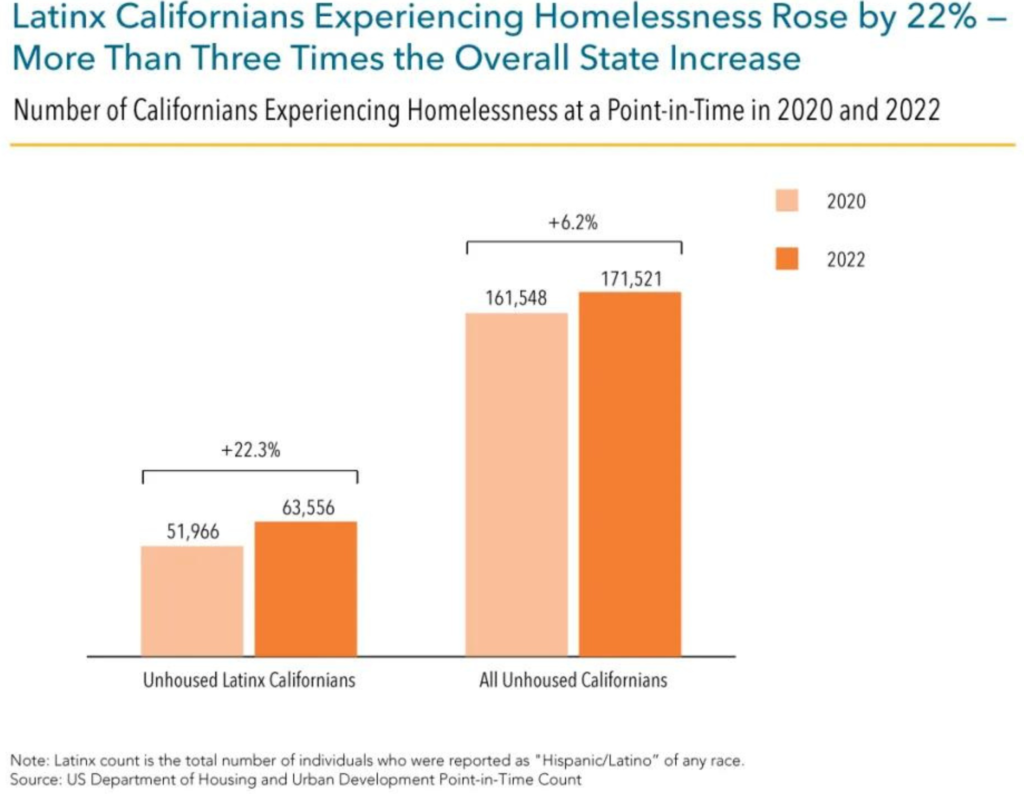
By Marlene M. Fitzwater
Latinos are less likely than white people to use hospice care, although there is evidence that their need for services may be greater. While there has been an increased effort by hospices to reach out to minority populations, hospice care is still underutilized by Latino families, according to the American Hospice Foundation.
This means that few Latino families have experience with hospice care and, thus, they may have misconceptions about what a hospice facility like Joshua’s House offers or doubt the honesty of the information shared about its use.

While Latino families may not seek hospice care for family members, it is a different story for Latinos who are homeless. Homelessness among Latino Californians has increased by 22%, more than three times the overall state increase of 6.2% over the same period.
The sharp increase in unhoused Latino Californians most likely results from the effects of the pandemic which exacerbated the economic and housing insecurity many communities of color already faced. Latino Californians experienced high rates of housing hardship and unemployment and disproportionately worked in essential, low-wage occupations. They also confronted higher rates of COVID-19 infections and deaths during the first year of the pandemic, before COVID-19 vaccines and treatments were available. Combined, the pandemic’s deep economic and health ramifications made families and individuals more susceptible to not being able to afford to maintain their homes.
Thus, an increasing percentage of Latinos have become homeless. Because of genetics and environment, each unique ethnic group in the United States is at an increased risk for developing certain conditions. Several health issues are more prevalent in Hispanic people than the general population:
- Obesity. Hispanic Americans are 1.2 times as likely to be obese than non-Hispanic whites. This is especially important because obesity can lead to other health challenges.
- Diabetes. About 40 percent of adults in the United States are expected to develop type 2 diabetes in their lifetime. However, more than 50 percent of Hispanics are expected to someday be diagnosed with it.
- Hypertension (high blood pressure). Nearly 1 in 4 Hispanics has high blood pressure, which can be a precursor to a heart attack, stroke, kidney disease or heart failure.
- Chronic kidney disease. Hispanics are 1.5 times more likely to have kidney failure compared to other Americans. In fact, 20 percent of people on the kidney transplant waiting list are Hispanic.
- Chronic liver disease. Hispanics are at higher risk for developing certain liver diseases. Although the exact cause is unknown, it can be a result of conditions such as chronic alcoholism, obesity and exposure to hepatitis B and C viruses.
- Cancer. Overall, cancer rates among Hispanics are generally lower. However, those who were born outside of the United States are at higher risk for specific cancers related to infections, such as stomach, liver or cervical cancer.
(Statistics from Northwestern Medicine, 2022)
In response to this information, Joshua’s House is developing all their informational print pieces and resident agreements in both Spanish and English; will have translators available to help communicate with Spanish-speaking residents; and will provide all public information, including our Good Neighbor Policy in both English and Spanish.

